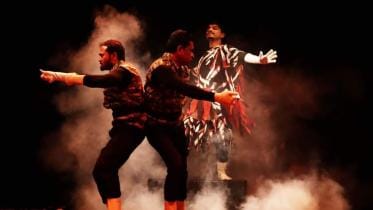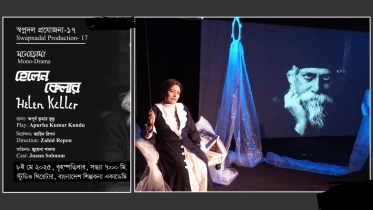Swapnadal theatre troupe
Swapnadal to stage mime of ‘Macbeth’ to mark Marcel Marceau's anniversary
“Macbeth” is based on William Shakespeare’s timeless tragedy, restructured by Juana Sobnom and presented in the Bangladeshi mime tradition.
21 September 2025, 06:24 AM
‘Helen Keller’ to take the spotlight at Shilpakala for Rabindra Jayanti
Swapnadal’s “Helen Keller” goes deeper than the familiar narrative of perseverance. It reveals the fascinating, often overlooked connection between Helen Keller and Rabindranath Tagore — exploring how the poet-philosopher’s ideas of human dignity, empathy, and universalism profoundly impacted Keller’s worldview. In doing so, the play not only celebrates Keller’s extraordinary triumphs but also spotlights the subtle ways Eastern thought influenced Western history.
7 May 2025, 06:15 AM
Swapnadal’s 'Macbeth' mime adaptation to mark World Mime Day this Saturday
At its core, "Macbeth" is a tragic tale of unchecked ambition, lust for power, and betrayal. It follows the story of a courageous general, Macbeth, whose relentless ambition drives him to murder King Duncan, seizing the throne for himself.
20 March 2025, 05:45 AM


